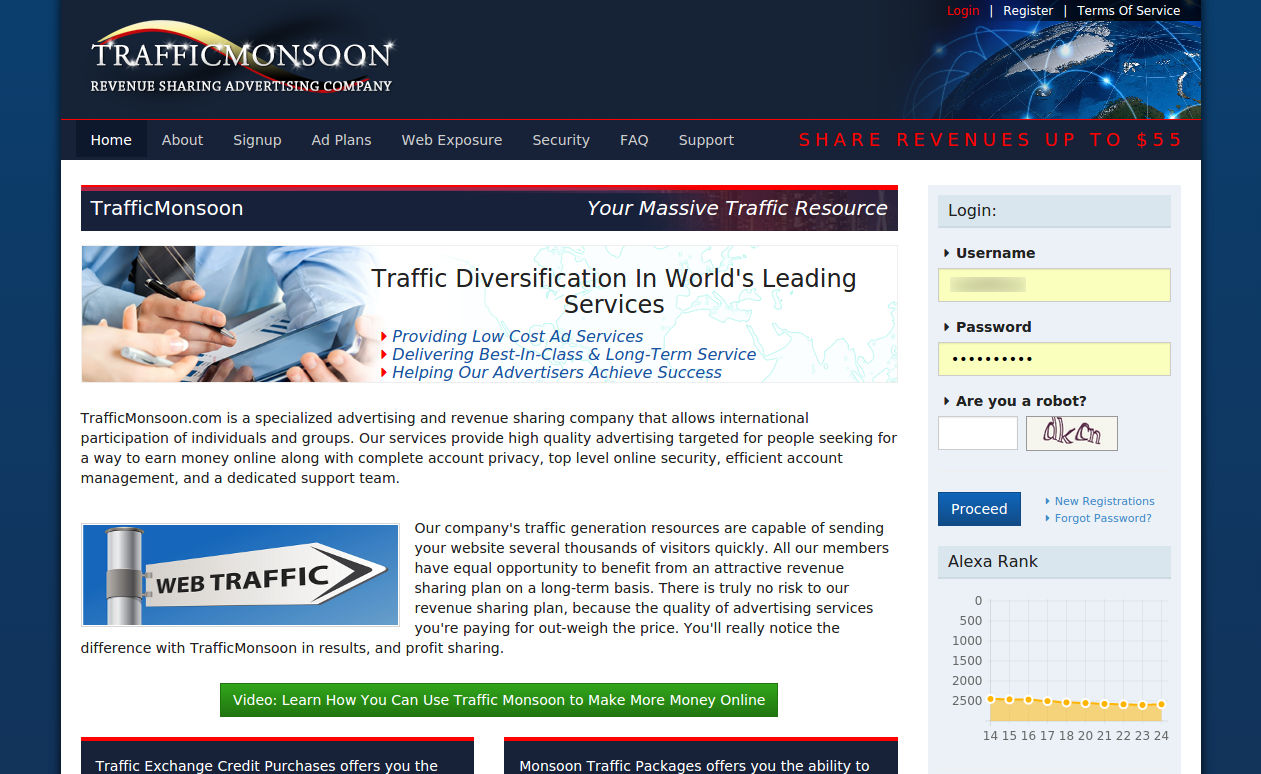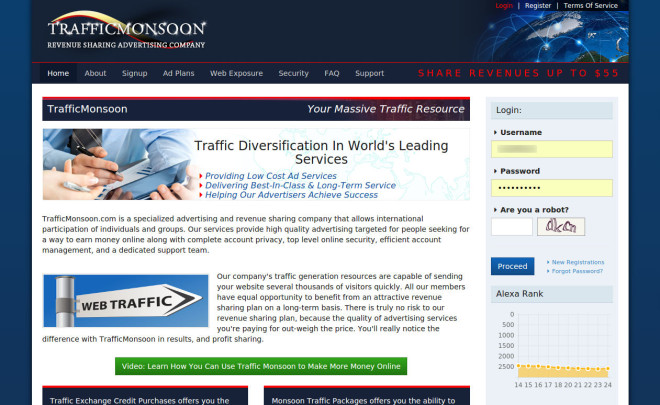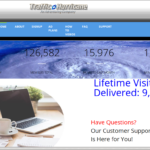The situation with Traffic Monsoon has changed recently, so I am forced to release a Serious scam warning against Traffic Monsoon
About just everybody looking into make money online has seen or heard about Traffic Monsoon by now. Is it paying? Yes. Is there value on it? Yes. Is it a scam? Not at this point, but be careful with it.

I am changing my opinion on this post after reading a lot more about the business and the owner, who is seen by many as a serial scammer, including me not long ago.
And I am putting some of my money on it myself. It is a very valuable tool to reach people, and for that reason alone it has return my investment on it.
It is good due to it’s popularity right now. There are many who has been drawn into Traffic Monsoon who had no previous experience with Paid-to-click and revenue-sharing systems. The current crisis is also making many people look into ways to make an income online.
But for those who have been on this for a long time, we learned the hard way that if something sounds too good to be true, it usually is.
According to my own statistical analysis, the system is sustainable as it is now; it is sharing revenue because it is generating a lot of it thanks to users buying ads, and the 110% return of investment when you purchase an AdPack to display your banners is effective.
So, who owns Traffic Monsoon and what is the history?
The owner’s name is Charles Scoville. He has run a number of sites such as infinitivebux.com; sites that no longer exist. Some of the things that should trigger a huge warning, not just here but in PTC Systems in general:
- The biggest promoters with hundreds of direct referrals began to get suspended, to avoid paying them and sell their referrals to other members.
- Members began to get suspended for no reason, and then they were charged $25 to remove the suspension.
- Pending cash-outs got converted to membership upgrades.
- The support page and the forum got removed.
He also owns the site adhitprofits.com, not to be confused with the advertising company AdHitz. Another initiative that is still ongoing.
So what is the deal here?
In previous systems that he had, he ran into problems with Payza for example, which resulted in he not paying on time.
This made a lot of people mistrust him, including me. And I came up heavy on him. But I have been working online long enough to know that some times things get messed-up, so I have been watching.
Regarding Traffic Monsoon, so far I don’t have a single complaint. No transfer to PayPal has ever been delayed, purchased AdPacks have come back at 110%, and the 20 clicks to the promoted banners have been effective and have turned into conversion.
And the other factor why I am actually changing my initial opinion, is that he now has a son. I see all the motivation to get a system functional, and so far, this one is very functional.
Are there other alternatives to Traffic Monsoon?
There are a few, among them:
- ClixSense – A PTC System with many ways to make money such as surveys, tasks and offers.
- NeoBux – There is a way to make a living out of it, but it takes a long time and some strategy to build. This is a long-term strategy, not a quick-money one. I’m still working on the guides and strategies and a statistical analysis tool.
- EasyHits4U – My favourite Traffic Exchange. Online since 2003, with almost a million members, good tools available (Splash pages, Site rotators, Geo-targeting) and some gamification features that can make the site addictive.
Foot note
Any “revenue-sharing” system, in order to not be a scam, needs to generate actual revenue to share. Otherwise, it is a pyramid-scheme: it takes money from the people below to be given to the people above, until it crumbles and everybody below gets screwed.
The 110% revenue sharing of Traffic Monsoon is not by any means unreasonable. It is not like you put $50 inside the system, sit down doing nothing, and you get $55 back the next week.
You still need to log-in and see ads every single day for quite a while before you get back the $55; you stop seeing ads, you stop getting revenue share.





